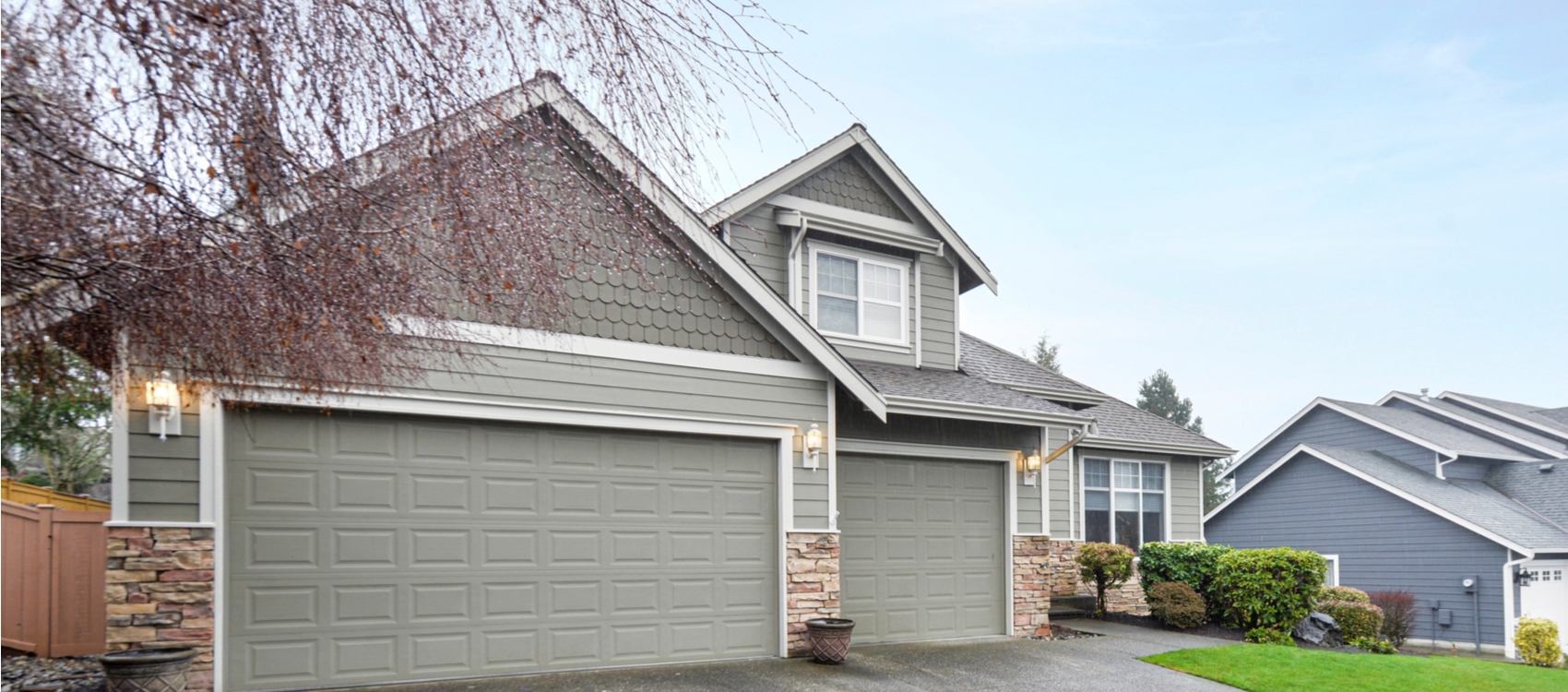
A Guide on How to Buy a House
Are you looking to buy your first home?
This can be an exciting and overwhelming process, but don’t worry, we’re here to help! In this guide, we will walk you through everything you need to know about buying a home for the first time.
We’ll cover the basics, like getting pre-approved for a mortgage and finding the right home for you, as well as more specific tips like how to negotiate a good deal and what to do if you run into problems during the buying process.
So whether you’re just starting to research homeownership or are ready to make an offer on your dream home, read on for our complete guide to buying a house!

First Step: Pre-Approval
The first thing you need to do is get pre-approved for a mortgage, so that you know how much money the lender will lend you. This will help determine what price range of homes are in your budget and give sellers confidence when they see that an offer has been made by someone who has already gotten their finances in order (and who knows how much they can afford).
What is the pre-approval process?
The pre-approval is the first step in getting a mortgage. During this process, the lender will do a credit check and review your income, debts, and assets to determine how much money they are willing to lend you.
Keep in mind that being pre-approved does not mean you have actually been approved for a mortgage; it just means that the lender is willing to give you a loan up to a certain amount.
What documents do I need?
In order to get pre-approved, you will need to provide some documentation to the lender, including:
- Your most recent pay stubs or tax returns
- Proof of any assets you may have (like savings,stocks, bonds, or property)
- Proof of your current mortgage or rent payments
- and more…
How long does the pre-approval process take?
The pre-approval process usually takes around 72 hrs, but it can vary depending on the lender. Keep in mind that if you are buying a home with another person, both of your credit reports will be pulled and analyzed.
Do I need to have a down payment?
There are a few different down payment options available when purchasing a home:
- You can pay 20% of the purchase price and avoid paying mortgage insurance.
- If you are a veteran, you may be eligible for a VA loan, which requires no down payment.
- A conventional loan usually requires a down payment of at least 20%, but there are some programs that allow for down payments as low as 3% percent.
- FHA offers loans with down payments as low as 3.5%
- USDA offers a loan program with no down payment and low interest rates. This loan is available to rural homebuyers who meet certain eligibility requirements.
There are many different mortgage options available, so it is important to consult with a lender to find the best solution for your specific situation.
Down payment options can vary depending on the type of loan you choose, so be sure to ask about all of your options.
Second Step: Closing Costs
Closing costs are fees and expenses associated with buying or selling a property that typically range from about two to five percent of the purchase price. In addition to your down payment, you’ll need to save money for closing costs such as appraisal fees and title insurance premiums.
Costs can include:
- The down payment on the home
- Mortgage application and processing fees
- Property taxes
- Homeowner’s insurance
- Home inspection fees
- Attorney’s fees
- Appraisal
- County recording fees
- Title Fees
When purchasing a home, costs cannot be rolled into the loan. A seller credit can be requested to cover some or all of your costs. You can read more about how this works by going to: Closing Costs for Buyers
Third Step: Find a Real Estate Agent
It’s important to work with an experienced real estate agent when buying your first home. They will guide you through the process and help you find properties that meet all of your needs. Plus, they can help you negotiate a good deal on the home you want.
There are three ways that you can buy a home
- Through a buying agent (or “realtor”)
- bidding on a property at an auction
- purchasing directly from a seller
Buying agents typically work with buyers who want help finding and negotiating a deal on a home, while auction properties are usually sold at lower prices than comparable homes in the same area, but usually require cash.
If you choose to purchase directly from a seller, keep in mind that it may take longer than if you were using an agent or bidding process because sellers don’t always have all of their paperwork ready right away (which can delay closing).
Fourth Step: Start Looking for Homes
Once pre-approved, you and your real estate agent can start looking at homes online or visiting open houses. Searching for homes is one of the most exciting parts about buying a house because it gives people an idea what their new life could look like living there! If you see a home you like, don’t hesitate to make an offer—the sooner you do, the more likely you are to get it.
Fifth Step: Negotiating a Deal
When you find the perfect home, it’s time to make an offer! This process can be tricky, so your real estate agent will help guide you through it. When making an offer on a house, remember that the seller is looking for the best deal too. This means that you’ll probably have to negotiate on price, as well as other terms of the sale like closing costs and repairs. Have some idea of what you’re willing to pay and be prepared to walk away if the negotiations go too far south.
Make sure to visit the property and measure the space; this is especially important if you’re looking for a specific amount of space. You’ll also want to check out the neighborhood and see what kind of schools are nearby.
Sixth Step: Inspection and Appraisal
Getting the home inspected is an important step before buying a house. This way, buyers know what they’re getting into with their purchase, so they can plan repairs accordingly or walk away if there are too many issues that would cost more than what’s worth fixing up! A professional inspector will look at things like roof condition (if applicable), foundation cracks/settlement signs inside walls & floors; electrical wires exposed on exterior surfaces; water damage around windowsills or siding due to leaking roofs etc…
The appraiser will determine the value of your new home by looking at comparable homes in the area and using this information as well as market conditions to estimate how much it would cost if sold today.
Seventh Step: Homeowners insurance
After your inspections, it’s time to start getting quotes for homeowners insurance.
Homeowners is required by lenders and covers damage from events such as fire or theft. It protects against liability claims made by others who may visit your home.
Having this coverage can give you peace of mind knowing that you are financially protected in case something happens.
One important thing to note, though, is that homeowners insurance doesn’t cover everything. Make sure you read through your policy carefully to understand what exactly is and isn’t covered in the event of a claim.
Eighth Step: Final Walkthrough
Before closing on your new home, you’ll want to do a final walkthrough with your real estate agent to make sure that everything is in order. This includes checking appliances, fixtures, and making sure all the repairs that were agreed upon have been made.
Ninth Step: Closing
Once the contract is signed, it will take three to four weeks to close on the home.
Closing is when you sign all of the paperwork for your new home purchase, including mortgage documents and a deed transfer from one party (seller) to another (buyer). The process typically takes about 30-45 days after an offer has been accepted depending on how quickly everything gets done! If there are any problems that need attention before closing can occur then those issues will be addressed first before proceeding with signing day.
Why does it take so long?
There are a lot of things that go into buying a home, and each step can take time.
The lender has to make sure that everything is in order before they give you the green light to buy the property.
This includes verifying your credit score, employment, and income information. An aprpaisal is also ordered to make sure that the home is worth the purchase price.
Title will perform a title search to make sure there are no liens on the property and order an insurance policy for the new homeowners.
There are ways to speed up this process, but for the most part, 30 days is about average. If you need to close more quickly, be sure to discuss this with your mortgage broker or lender as soon as possible. They may be able to work something out for you.
Conclusion
Buying a home for the first time is an exciting and scary experience. There are many things to consider when purchasing property, but as long as you do your research before making any decisions then everything should go smoothly! Make sure that all of these steps have been taken care of before moving forward with buying a house so there aren’t any surprises down the road.
Categories
Latest Post
- Are property taxes included in the mortgage?
- Property Taxes
- What are the 4 c’s of credit?
- What is an appraisal contingency?
- Flying Solo: Purchasing a Home Without Your Spouse in Texas
- The Real Reason Underwriters Deny Loans – What You Need to Know
- Stretch Your Home Buying Budget with a 40-Year Mortgage
- Save Money on Your Mortgage with a No Closing Cost Option
- Co-Borrowers on a Mortgage: Everything You Need to Know
- Maximize Your Home Buying Budget: Lender Credits 101